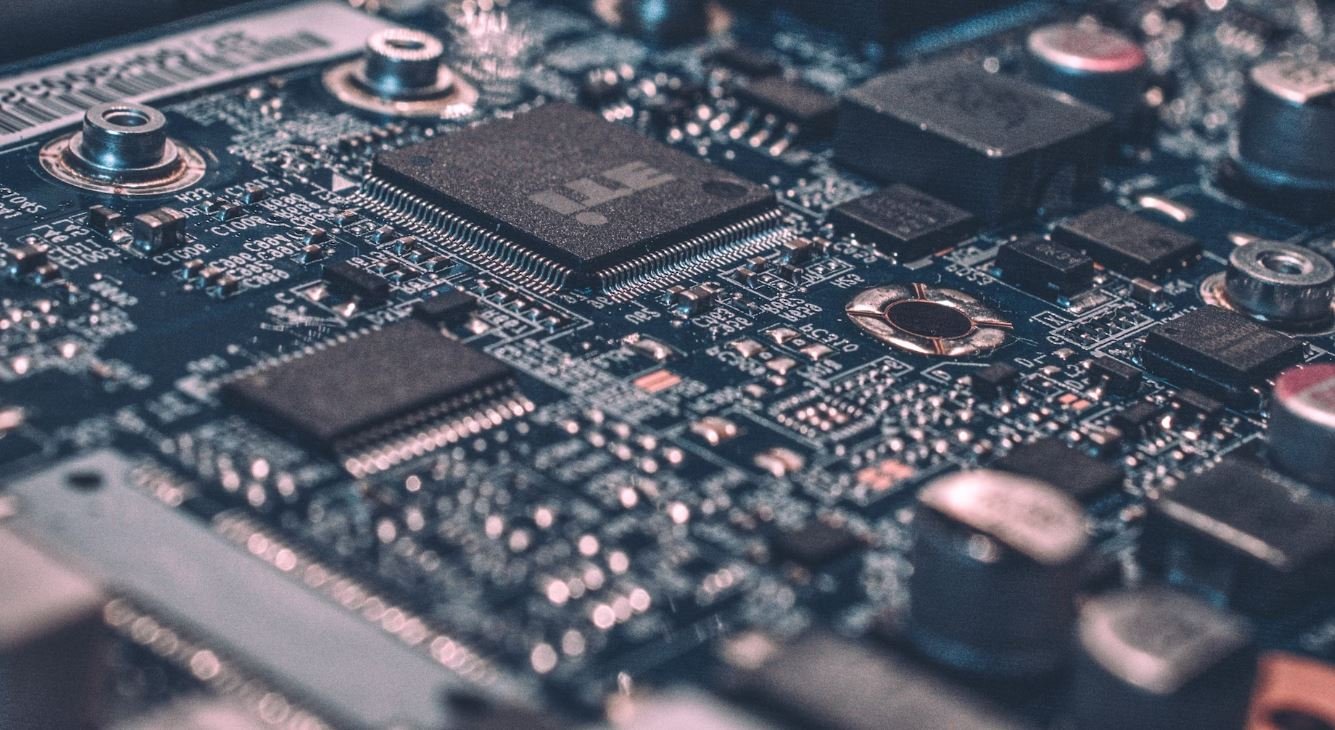Artificial Intelligence Can Be Broadly Classified As
Artificial Intelligence (AI) is a branch of computer science that aims to develop intelligent machines capable of performing tasks that would typically require human intelligence.
Key Takeaways
- AI is a branch of computer science focused on developing intelligent machines.
- It can be broadly classified into two categories: narrow AI and general AI.
- Narrow AI is designed to perform specific tasks, while general AI aims to exhibit human-like intelligence.
- AI technologies include machine learning, natural language processing, and computer vision.
- The field of AI has applications in various industries, including healthcare, finance, and transportation.
AI can be broadly classified into two categories: narrow AI and general AI. Narrow AI, also known as weak AI, is designed to perform specific tasks and is limited to the particular domain it is programmed for. On the other hand, general AI, also referred to as strong AI, aims to exhibit human-like intelligence and possess the ability to understand, learn, and apply knowledge across different domains.
AI technologies play a crucial role in enabling machines to accomplish intelligent tasks. Machine learning is a subset of AI that allows computers to learn from and make predictions or decisions without being explicitly programmed. Natural language processing (NLP) focuses on enabling machines to understand and process human language. Computer vision involves teaching machines to interpret and analyze visual information. These technologies form the foundation of many AI applications and continue to evolve rapidly.
Types of Artificial Intelligence
Artificial Intelligence can be categorized into different types based on its capabilities and applications:
- Reactive Machines: These AI systems do not have memory or the ability to learn from past experiences. They operate solely based on the current input to provide responses or perform tasks. Examples include Deep Blue, IBM’s chess-playing computer, and virtual assistants like Apple’s Siri.
- Limited Memory AI: These systems can utilize past experiences to make decisions and improve performance. They can store and recall information to enhance their functionality. Self-driving cars often utilize limited memory AI to learn from previous driving experiences and make informed decisions on the road.
- Theory of Mind AI: This level of AI is hypothetical and represents machines that not only possess self-awareness but also understand the mental states, emotions, and intentions of others. Although not yet achieved, Theory of Mind AI has been the subject of research and speculation within the AI community.
Applications of Artificial Intelligence
AI has numerous applications across various industries:
- Healthcare: AI algorithms can help analyze medical data, assist in disease diagnosis, and accelerate drug discovery.
- Finance: AI-powered systems can identify fraud, provide personalized financial recommendations, and automate trading.
- Transportation: Self-driving cars and trucks rely on AI to navigate, identify obstacles, and enhance safety on the roads.
- Customer Service: Chatbots and virtual assistants can provide instant support and answer customer queries, improving efficiency and user experience.
- Manufacturing: AI technologies optimize production processes, predict maintenance needs, and enable robotic automation in factories.
| Application | Advancements |
|---|---|
| Diagnosis and Treatment | AI algorithms can analyze medical images, assist in accurate diagnosis, and help determine optimal treatment plans. |
| Drug Discovery | AI-powered systems can analyze vast amounts of data to identify potential drug compounds and accelerate the discovery process. |
| Application | Impact |
|---|---|
| Fraud Detection | AI algorithms can analyze patterns, detect anomalies, and identify potential fraudulent activities. |
| Algorithmic Trading | AI-powered trading systems can automatically execute trades based on predefined rules and market conditions. |
| Application | Advancements |
|---|---|
| Self-Driving Vehicles | AI enables vehicles to navigate, recognize traffic signals, and make informed decisions on the road, potentially improving safety and reducing accidents. |
| Traffic Management | AI systems can optimize traffic flow, predict congestions, and suggest alternate routes to reduce travel time. |
As AI continues to advance, its impact on various sectors is expected to grow exponentially. Through the use of machine learning, natural language processing, and computer vision, AI systems can perform complex tasks and provide valuable insights. With its potential to revolutionize industries, AI is set to reshape our present world and shape the future of technology.

Common Misconceptions
Artificial Intelligence Can Be Broadly Classified As
Artificial Intelligence (AI) is a topic that is often misunderstood and surrounded by various misconceptions. One of the common misunderstandings is regarding the broad classification of AI. It is important to clarify that AI cannot be simply categorized in a single way, as it encompasses various subfields, techniques, and applications.
- AI includes both narrow and general intelligence systems.
- Machine Learning, Natural Language Processing, and Computer Vision are specific branches of AI.
- AI can be classified based on its application domains such as healthcare, finance, and robotics.
Not All AI Systems Are Human-Like Robots
Another misconception people often have about AI is that all AI systems are humanoid robots or machines capable of mimicking human behavior. While there are AI systems that exhibit human-like qualities, such as advanced chatbots or robots, not all AI systems are designed to look or act like humans.
- AI can also be found in virtual assistants like Siri or Alexa.
- AI may exist as software applications running in the background without any physical representation.
- AI algorithms can be used for data analysis and decision-making processes without any physical manifestation.
AI Will Replace Human Workers Completely
One of the concerns surrounding AI is the fear of widespread job loss and the complete replacement of human workers by intelligent machines. While it is true that AI has the potential to automate certain tasks and job roles, it is unlikely to completely replace human workers in most industries.
- AI is more likely to augment human capabilities rather than replace them entirely.
- AI can handle repetitive and mundane tasks, allowing humans to focus on more complex and creative endeavors.
- AI can create new job roles and opportunities in fields that require expertise in AI implementation and management.
AI Is All-Powerful and Infallible
Many people assume that AI is all-powerful and infallible, capable of solving any problem or accurately predicting the future. However, AI systems are not without limitations and can have their own shortcomings and biases.
- AI systems are only as reliable and accurate as the data they are trained on. Biased or incomplete data can lead to biased outcomes.
- AI can struggle with interpreting context and making nuanced decisions, as it lacks human intuition and empathy.
- AI systems can be vulnerable to adversarial attacks and manipulation.
AI Is a Threat to Humanity
There is a common misconception that AI poses an existential threat to humanity, fueled by sensational media portrayals and sci-fi movies. While there are valid ethical concerns regarding AI, the notion of AI turning against humanity is largely exaggerated.
- AI is developed and programmed by humans, meaning its behavior and capabilities are ultimately shaped by human intentions and oversight.
- Ethical frameworks and regulations are being developed to ensure responsible and beneficial use of AI.
- AI technology can be harnessed for solving complex problems and advancing society in various sectors such as healthcare, climate change, and transportation.

AI Applications in Everyday Life
Artificial intelligence (AI) has become an integral part of our daily lives, impacting various industries and sectors. The following table showcases some compelling examples of AI applications and how they are transforming our everyday experiences.
| AI Application | Description |
|---|---|
| Virtual Personal Assistants (VPAs) | VPAs like Siri, Alexa, and Google Assistant assist users in tasks such as setting reminders, answering questions, and controlling smart home devices. |
| Facial Recognition | Facial recognition technology is used for secure authentication, unlocking smartphones, and identifying individuals at airports, banks, and other places. |
| Smart Recommendations | AI algorithms analyze user preferences and behavior to provide personalized recommendations for movies, music, news articles, and shopping items. |
| Autonomous Vehicles | Self-driving cars and autonomous vehicles leverage AI to navigate roads, detect obstacles, and make real-time decisions, enhancing safety and efficiency. |
| Medical Imaging Analysis | AI-powered tools assist medical professionals in analyzing and interpreting complex medical images, aiding in the diagnosis of diseases. |
| Fraud Detection | Machine learning algorithms identify patterns and anomalies in financial transactions, detecting fraudulent activities and protecting against theft. |
| Chatbots | Chatbots utilize natural language processing to provide instant customer support, answer queries, and help with online purchases. |
| Smart Home Devices | AI-driven smart home devices like thermostats, security systems, and lights learn user preferences and adjust settings automatically for optimal comfort. |
| Language Translation | Translation services powered by AI algorithms enable people to communicate seamlessly across different languages, fostering global connections. |
| Robot Assistants | Robots equipped with AI capabilities assist with household chores, companion tasks, and even serve as support for individuals with disabilities. |
The Impact of AI on Job Market
Artificial intelligence is rapidly shaping the job market, introducing new possibilities and transforming existing roles. The table below highlights how AI is affecting different job sectors and the associated changes.
| Job Sector | Impact of AI |
|---|---|
| Manufacturing | AI-enabled automation leads to increased efficiency, reduced costs, and more precise quality control. However, certain manual jobs may be replaced by robotic systems. |
| Transportation | Self-driving vehicles and AI-based logistics optimize route planning, improve safety, and enhance transportation efficiency. Some driving jobs may transition to monitoring and maintenance roles. |
| Healthcare | AI-assisted diagnostics, robotic surgeries, and smart healthcare systems enhance accuracy, speed up patient care, and reduce errors. Traditional roles may shift towards managing and interpreting AI-generated data. |
| Customer Service | Chatbots and AI-powered support systems enable quick resolution of customer queries. Human agents may focus on complex issues and providing personalized assistance. |
| Finance | AI algorithms automate data analysis, risk assessment, and fraud detection, leading to improved decision-making and streamlined operations. Finance professionals can utilize AI as a tool for more accurate predictions and strategic planning. |
| Education | AI-based learning platforms offer personalized education, adaptive assessments, and intelligent tutoring. Teachers play a crucial role in guiding and leveraging these AI tools for optimized learning experiences. |
| Marketing | AI advancements fuel targeted advertising, customer behavior analysis, and predictive marketing campaigns. Marketers can focus on creative strategies while AI handles data-driven insights. |
| Agriculture | AI-based systems assist in crop monitoring, resource optimization, and automated harvesting. Farmers gain real-time insights and can employ precision agriculture techniques for increased yields. |
| Legal | AI-powered research tools streamline legal research, contract analysis, and document review, reducing time and effort. Lawyers shift towards strategic planning and counseling while leveraging AI for information gathering. |
| Entertainment | AI influences content recommendation, virtual reality experiences, and personalized entertainment. Creatives and content producers collaborate with AI tools to enhance storytelling. |
AI Ethics and Challenges
As the field of AI rapidly develops, serious ethical concerns and challenges arise alongside its benefits. The table below touches on some key aspects to consider in the context of AI ethics.
| Ethical Aspect | Challenges |
|---|---|
| Privacy | AI systems collect and process vast amounts of personal data, raising concerns about data privacy, security breaches, and potential misuse of individuals’ information. |
| Transparency | Black-box AI algorithms can be difficult to comprehend, leading to challenges in understanding how decisions are made. The lack of transparency raises issues of accountability and potential bias. |
| Job Displacement | Widespread AI adoption may lead to job displacement, necessitating reskilling initiatives and addressing potential socioeconomic impacts on displaced workers and affected communities. |
| Algorithmic Bias | AI algorithms might exhibit bias due to biased training data or embedded prejudices. Addressing this challenge is crucial to ensure fairness, inclusivity, and avoid perpetuating societal inequalities. |
| Autonomous Weapons | Developing autonomous weapons raises concerns about the absence of human oversight and the potential for weapon systems to make deadly decisions independently. |
| Moral Decision Making | AI systems may encounter moral dilemmas and ethical decision-making situations. Defining moral guidelines and instilling ethical values into AI is a complex challenge. |
| Cybersecurity | AI systems can be vulnerable to attacks, including adversarial attacks, data poisoning, and privacy breaches. Enhancing AI system security is crucial for safeguarding against malicious activities. |
| Human Autonomy | AI advancements may pose risks regarding human autonomy and decision-making processes. Ensuring AI remains a tool and humans retain control is essential for responsible AI development. |
| Accountability | Establishing legal and ethical frameworks that hold individuals and organizations accountable for AI system behavior and outcomes is a critical aspect of responsible AI deployment. |
| Social Impact | AI’s impact on society, privacy, employment, and inequality requires careful consideration and proactive steps to mitigate any negative effects and promote positive social change. |
AI Technologies in Healthcare
Artificial intelligence is revolutionizing the field of healthcare, empowering medical professionals and improving patient outcomes. The table below highlights various AI technologies implemented in healthcare settings.
| AI Technology | Description |
|---|---|
| Deep Learning | Deep learning neural networks are capable of analyzing complex medical images, such as MRIs and CT scans, aiding in diagnosis and treatment planning. |
| Natural Language Processing | Natural language processing algorithms extract valuable insights from medical texts, patient records, research papers, and assist in generating clinical reports. |
| Robot-Assisted Surgery | Robots with AI capabilities assist surgeons during complex procedures, enhancing precision, reducing invasiveness, and enabling minimally invasive surgery. |
| Healthcare Analytics | Data analytics tools analyze large amounts of healthcare data, enabling predictive modeling, disease tracking, resource allocation, and improving population health. |
| Virtual Nurses | Virtual nurse platforms provide personalized health guidance, reminders, and monitor patients remotely, improving self-care and enhancing healthcare accessibility. |
| Medical Chatbots | Chatbots equipped with medical knowledge help patients with preliminary diagnoses, provide information, and support mental health management. |
| Genomics and Precision Medicine | AI assists in analyzing genomic data and tailoring treatment plans based on individual genetic profiles, leading to targeted therapies and personalized medicine. |
| Drug Discovery | AI accelerates drug discovery processes by analyzing large datasets, predicting molecular interactions, and identifying potential drug candidates. |
| Remote Patient Monitoring | IoT devices and AI systems allow continuous monitoring of patients’ vital signs, detecting early warning signs, and empowering timely interventions. |
| Assistive Technologies | AI-enabled assistive technologies aid individuals with disabilities or special needs in performing daily activities, improving independence and quality of life. |
AI in Cybersecurity
The ever-evolving cyber threat landscape necessitates advanced solutions to protect digital systems. The following table outlines how artificial intelligence contributes to strengthening cybersecurity defenses.
| Cybersecurity Domain | AI Applications |
|---|---|
| Threat Detection | AI algorithms analyze vast amounts of system data and network traffic to identify patterns, anomalies, and indicators of cyber threats and potential breaches. |
| Malware Detection | AI-based systems leverage machine learning techniques to dynamically detect and classify malware, helping identify and mitigate potential security risks. |
| User Behavior Analysis | AI models learn normal user behavior, detecting suspicious activities, insider threats, and unauthorized access attempts, enhancing overall system security. |
| Vulnerability Assessment | AI tools automatically scan systems, networks, and applications to detect vulnerabilities and provide actionable recommendations for remediation. |
| Automated Incident Response | AI-powered systems can autonomously respond to security incidents, containing breaches, isolating affected systems, and initiating recovery processes. |
| Adaptive Authentication | AI algorithms analyze user behavior, device information, and contextual data to provide adaptive and risk-based authentication, minimizing unauthorized access. |
| Threat Intelligence | AI aids in gathering, analyzing, and processing threat intelligence from various sources, enriching security teams with actionable insights for proactive defense. |
| Data Loss Prevention | AI-enabled data loss prevention solutions constantly monitor data movements, detect potential data breaches, and prevent unauthorized data exfiltration. |
| Security Automation | AI and machine learning drive security automation, empowering systems to automatically respond to threats, apply patches, and update security policies. |
| Behavioral Biometrics | AI algorithms analyze unique behavioral patterns, such as keystrokes or mouse movements, for continuous user authentication and fraud detection. |
The Future of AI: Advancements and Possibilities
The field of artificial intelligence is poised for incredible advancements, bringing forth exciting possibilities in various domains. The table below explores some futuristic applications and potential prospects of AI.
| AI Application | Description |
|---|---|
| Humanoid Robots | Humanoid robots equipped with AI capabilities can perform complex tasks, interact with humans naturally, and assist in various sectors like healthcare, hospitality, and manufacturing. |
| Emotional AI | Emotional AI aims to develop systems with emotional intelligence, enabling machines to understand and respond to human emotions, enhancing human-computer interactions. |
| AI-Driven Education | AI-powered adaptive learning methodologies, personalized tutoring, and intelligent educational platforms can revolutionize education, tailoring learning experiences to individual needs. |
| Quantum Computing | Quantum computers harness quantum mechanics principles to perform complex computations, exponentially increasing processing power, and solving problems currently infeasible for classical computers. |
| AI-Assisted Drug Development | AI can significantly expedite the drug development process by simulating molecular interactions, predicting drug efficacy, and identifying potential drug targets. |
| Artificial General Intelligence (AGI) | AGI aims to create highly autonomous systems capable of outperforming humans across a wide range of tasks, prompting breakthroughs in areas like research, problem-solving, and creative endeavors. |
| Cognitive Computing | Cognitive computing combines AI, natural language processing, and advanced data analytics to create systems that mimic human cognitive processes, enabling advanced decision-making, problem-solving, and analysis. |
| Smart Cities | AI technologies in urban planning, transportation, resource management, and public safety can make cities more efficient, sustainable, and responsive to citizens’ needs. |
| Virtual Reality (VR) and AI Fusion | Merging AI with virtual reality technologies can create immersive and intelligent virtual environments, revolutionizing areas like education, training, and entertainment. |
| Neuromorphic Computing | Neuromorphic chips mimic the structure and functionality of the human brain, offering low power consumption and high-speed computation for AI systems. |
Conclusion
In this age of technological innovation, the widespread use and advancement of artificial intelligence have become undeniable. From revolutionizing everyday life through applications like virtual assistants and autonomous vehicles to creating significant impacts in healthcare, cybersecurity, and various job sectors, AI has reshaped the world around us. However, ethical considerations, job market transformations, and challenges related to transparency and algorithmic bias must be carefully addressed. As AI continues to advance with promising possibilities on the horizon, it is crucial to cultivate responsible AI development, keeping human values, accountability, and societal impact at the forefront.
Frequently Asked Questions
Artificial Intelligence Can Be Broadly Classified As
What is Artificial Intelligence?
Artificial Intelligence (AI) refers to computer systems or machines designed to mimic human intelligence, enabling them to perform tasks that typically require human intelligence, such as visual perception, speech recognition, decision-making, and problem-solving.
What are the main types of Artificial Intelligence?
Artificial Intelligence can be broadly classified into three main types: narrow AI, general AI, and superintelligent AI. Narrow AI is designed to perform specific tasks, general AI possesses human-like cognitive abilities across various domains, and superintelligent AI surpasses human intelligence in almost every aspect.
How is Artificial Intelligence used in everyday life?
Artificial Intelligence is utilized in many aspects of our daily lives, including virtual assistants, personalized recommendations, autonomous vehicles, fraud detection, email spam filters, voice recognition systems, and many more.
What ethical concerns arise with the development of Artificial Intelligence?
Several ethical concerns arise with the development of Artificial Intelligence, such as job displacement, potential biases in decision-making algorithms, privacy and security risks, the potential for AI to be weaponized, and the challenge of ensuring AI systems are transparent and accountable.
What is the future of Artificial Intelligence?
The future of Artificial Intelligence looks promising. Advancements are expected in various domains, including healthcare, transportation, finance, and more. However, ongoing research and careful regulation will be necessary to address the associated challenges and ensure AI is utilized for the benefit of humanity.
How does Artificial Intelligence learn?
Artificial Intelligence learns through various methods, such as supervised learning, unsupervised learning, reinforcement learning, and deep learning. These techniques involve training AI models using vast amounts of data, enabling them to recognize patterns, make predictions, and optimize their performance.
Can Artificial Intelligence outperform humans in certain tasks?
Yes, Artificial Intelligence has demonstrated the ability to outperform humans in specific tasks, such as image and speech recognition, board games, medical diagnostics, and data analysis. However, AI still has limitations and cannot replicate the entirety of human intelligence.
What are the risks associated with Artificial Intelligence development?
Risks associated with Artificial Intelligence development include unintended consequences due to biased training data, AI systems making incorrect decisions, potential job loss due to automation, and the possibility of AI being used maliciously or for harmful purposes.
Are there any regulations or guidelines for the development of Artificial Intelligence?
Several organizations and countries have proposed regulations and guidelines for the development of Artificial Intelligence. These aim to ensure the responsible and ethical use of AI, safeguarding privacy, preventing discrimination, and avoiding societal harm. Examples include the EU’s General Data Protection Regulation (GDPR) and guidelines laid out by the AI Now Institute.
Can Artificial Intelligence become self-aware?
As of now, Artificial Intelligence has not achieved self-awareness. Current AI systems lack consciousness and self-referential awareness, which are distinct characteristics of human intelligence. Achieving self-awareness in AI remains an area of active research and debate within the field.




